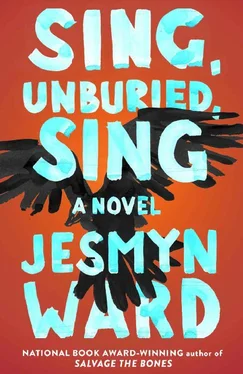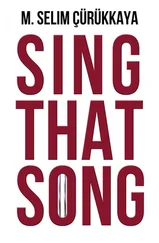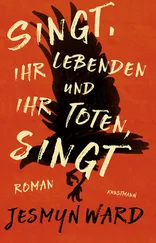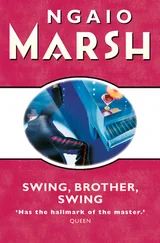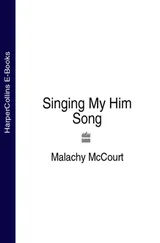“Hey,” Richie says.
Sometimes I see more than Mam.
“Ugh,” I say, and I don’t know why.
I’m mad as shit. Because when I see his big ears and his arms and legs skinny and brittle as fallen branches, I know part of me been waiting on Mam. Been hoping I run into her on one of my walks. And when I see him, part of me know it ain’t never going to be Mam, never going to be her sitting on a tree trunk, a rotten stump, waiting for me. That I’m never going to see her or hear Uncle Given call me nephew again.
The wind swoops down into the gloaming, brushes me with a great wing, and rises.
“What you doing here?” I say.
“I’m here,” he says. He runs his hand through his hair, and it is still as rain-eaten stone.
“I see that.”
“No.” Richie reclines against the trunk like it is a great seat. “I thought . . .” He looks toward the trail behind me. Looks toward my house. Makes a sound like breath but doesn’t breathe.
“What?”
“I thought once I knew, I could. Cross the waters. Be home. Maybe there, I could”—the word sounds like a ripped rag—“become something else. Maybe, I could. Become. The song.”
I am cold.
“I hear it. Sometimes. When the sun. Sets. When the sun. Rises. The song. In snatches. The stars. A record. The sky. A great record. The lives. Of the living. Of those beyond. See it in flashes. The sound. Beyond the waters.”
“But?”
“I can’t.”
“Don’t—”
“I can’t. Come inside. I tried. Yesterday. There has to be some need, some lack. Like a keyhole. Makes it so I can come in. But after all that—your mam, your uncle. Your mama. I can’t. You’ve”—he makes that breath-sucking sound again—“changed. Ain’t no need. Or at least, ain’t no need big enough for a key.”
A yellow jacket whizzes my neck, wanting to land and suck. I wave it away, and it circles again, until I slap at it, feel the hard little body ping off my palm and ricochet off into the gloom, in search of easier food.
“There’s so many,” Richie says. His voice is molasses slow. “So many of us,” he says. “Hitting. The wrong keys. Wandering against. The song.” He sounds tired. He lies down, looks up at me from his bed. His head is bent wrong from the root beneath it, which butts up against his neck. A hard pillow. “Stuck. You seen. The Snake? Did you know?”
I shake my head.
“Me,” he drags, “neither. So many crying loose. Lost.”
His blinks: a cat on the ledge of a nap.
“Now you understand.” He closes his eyes. Lets go a bullfrog’s croak. “Now you understand life. Now you know. Death.” He is quiet as sleep, but he moves. One long brown line, rippling like water. And then I see it. He ascends the tree like the white snake. He undulates along the trunk, to the branches, where he rolls out along one, again in a recline. And the branches are full. They are full with ghosts, two or three, all the way up to the top, to the feathered leaves. There are women and men and boys and girls. Some of them near to babies. They crouch, looking at me. Black and brown and the closest near baby, smoke white. None of them reveal their deaths, but I see it in their eyes, their great black eyes. They perch like birds, but look as people. They speak with their eyes: He raped me and suffocated me until I died I put my hands up and he shot me eight times she locked me in the shed and starved me to death while I listened to my babies playing with her in the yard they came in my cell in the middle of the night and they hung me they found I could read and they dragged me out to the barn and gouged my eyes before they beat me still I was sick and he said she an abomination and Jesus say suffer little children so let her go and he put her under the water and I couldn’t breathe . Eyes blink as the sun blazes and winks below the forest line so that the ghosts catch the color, reflect the red. The sun making scarlet plumage of the clothes they wear: rags and breeches, T-shirts and tignons, fedoras and hoodies. Their eyes close and then open as one, looking down on me, and then up at the sky, as the wind circles them and moans, their mouths gaping now, the airy rush their song, the rush: Yes .
I stand until there is no sun. I stand until I smell pine through the salt and sulfur. I stand until the moon rises and their mouths close and they are a murder of silver crows. I stand until the forest is a black-knuckled multitude. I stand until I bend, find a hollow stick, turn to the house, and whip the air in front of me, away from the dead, to find Pop, holding Kayla. They shine bright as the ghosts in the dark.
“We was worried about you,” Pop says.
Yes , they hiss.
“You didn’t come back,” he says. I shrug even though he can’t see it. Kayla squirms.
“Down,” she says.
“No,” Pop says.
“Down, Pop. Please,” she says.
“Let’s go,” I say. Knowing that tree of ghosts is there makes the skin on my back burn, like hundreds of ants are crawling up my spine, seeking tenderness between the bones to bite. I know the boy is there, watching, waving like grass in water.
“Please,” Kayla says, and Pop lets her slide down.
“No, Kayla,” I say.
“Yes,” she says, and then she toddles past me, unsteady on the dark ground. She faces the tree, nose up to the air. Head tilted back to see. Her eyes Michael’s, her nose Leonie’s, the set of her shoulders Pop’s, and the way she looks upward, like she is measuring the tree, all Mam. But something about the way she stands, the way she takes all the pieces of everybody and holds them together, is all her. Kayla.
“Go home,” she says.
The ghosts judder, but they do not leave. They sway with open mouths again. Kayla raises one arm in the air, palm up, like she’s trying to soothe Casper, but the ghosts don’t still, don’t rise, don’t ascend and disappear. They stay. So Kayla begins to sing, a song of mismatched, half-garbled words, nothing that I can understand. Only the melody, which is low but still as loud as the swish and sway of the trees, that cuts their whispering but twines with it at the same time. And the ghosts open their mouths wider and their faces fold at the edges so they look like they’re crying, but they can’t. And Kayla sings louder. She waves her hand in the air as she sings, and I know it, know the movement, know it’s how Leonie rubbed my back, rubbed Kayla’s back, when we were frightened of the world. Kayla sings, and the multitude of ghosts lean forward, nodding. They smile with something like relief, something like remembrance, something like ease.
Yes.
Kayla tugs my arm and I lift her up. Pop turns. I follow him as he looks for raccoon and possum and coyote, bends branch after branch as he leads us back to the house. Kayla hums over my shoulder, says shhh , like I am the baby and she is the big brother, says shhh like she remembers the sound of the water in Leonie’s womb, the sound of all water, and now she sings it.
Home , they say. Home.
Jesmyn Ward received her MFA from the University of Michigan and is currently an associate professor of creative writing at Tulane University. She is the author of the novels Where the Line Bleeds and Salvage the Bones , which won the 2011 National Book Award and was a finalist for the New York Public Library Young Lions Fiction Award and the Dayton Literary Peace Prize. She is also the editor of the New York Times bestselling anthology The Fire This Time: A New Generation Speaks About Race and the author of the memoir Men We Reaped , which was a finalist for the National Book Critics Circle Award and the Hurston/Wright Literary Award and won the Chicago Tribune Heartland Prize and the Media for a Just Society Award. In 2016, the American Academy of Arts and Letters selected Ward for the Strauss Living Award. She lives in Mississippi.
Читать дальше
